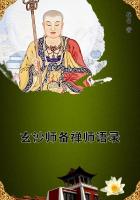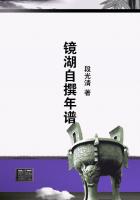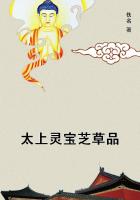The number of those who can go to war, in proportion to the whole number of the people, is necessarily much smaller in a civilised than in a rude state of society.In a civilised society, as the soldiers are maintained altogether by the labour of those who are not soldiers, the number of the former can never exceed what the latter can maintain, over and above maintaining, in a manner suitable to their respective stations, both themselves and the other officers of government and law whom they are obliged to maintain.In the little agrarian states of ancient Greece, a fourth or a fifth part of the whole body of the people considered themselves as soldiers, and would sometimes, it is said, take a field.Among the civilised nations of modern Europe, it is commonly computed that not more than one-hundredth part of the inhabitants in any country can be employed as soldiers without ruin to the country which pays the expenses of their service.
The expense of preparing the army for the field seems not to have become considerable in any nation till long after that of maintaining it in the field had devolved entirely upon the sovereign or commonwealth.In all the different republics of ancient Greece, to learn his military exercises was a necessary part of education imposed by the state upon every free citizen.
In every city there seems to have been a public field, in which, under the protection of the public magistrate, the young people were taught their different exercises by different masters.In this very ****** institution consisted the whole expense which any Grecian state seems ever to have been at in preparing its citizens for war.In ancient Rome the exercises of the Campus Martius answered the same purpose with those of the Gymnasium in ancient Greece.Under the feudal governments, the many public ordinances that the citizens of every district should practise archery as well as several other military exercises were intended for promoting the same purpose, but do not seem to have promoted it so well.Either from want of interest in the officers entrusted with the execution of those ordinances, or from some other cause, they appear to have been universally neglected; and in the progress of all those governments, military exercises seem to have gone gradually into disuse among the great body of the people.
In the republics of ancient Greece and Rome, during the whole period of their existence, and under the feudal governments for a considerable time after their first establishment, the trade of a soldier was not a separate, distinct trade, which constituted the sole or principal occupation of a particular class of citizens.Every subject of the state, whatever might be the ordinary trade or occupation by which he gained his livelihood, considered himself, upon all ordinary occasions, as fit likewise to exercise the trade of a soldier, and upon many extraordinary occasions as bound to exercise it.
The art of war, however, as it is certainly the noblest of all arts, so in the progress of improvement it necessarily becomes one of the most complicated among them.The state of the mechanical, as well as of some other arts, with which it is necessarily connected, determines the degree of perfection to which it is capable of being carried at any particular time.But in order to carry it to this degree of perfection, it is necessary that it should become the sole or principal occupation of a particular class of citizens, and the division of labour is as necessary for the improvement of this, as of every other art.
Into other arts the division of labour is naturally introduced by the prudence of individuals, who find that they promote their private interest better by confining themselves to a particular trade than by exercising a great number.But it is the wisdom of the state only which can render the trade of a soldier a particular trade separate and distinct from all others.A private citizen who, in time of profound peace, and without any particular encouragement from the public, should spend the greater part of his time in military exercises, might, no doubt, both improve himself very much in them, and amuse himself very well; but he certainly would not promote his own interest.It is the wisdom of the state only which can render it for his interest to give up the greater part of his time to this peculiar occupation: and states have not always had this wisdom, even when their circumstances had become such that the preservation of their existence required that they should have it.
A shepherd has a great deal of leisure; a husbandman, in the rude state of husbandry, has some; an artificer or manufacturer has none at all.The first may, without any loss, employ a great deal of his time in martial exercises; the second may employ some part of it; but the last cannot employ a single hour in them without some loss, and his attention to his own interest naturally leads him to neglect them altogether.These improvements in husbandry too, which the progress of arts and manufactures necessarily introduces, leave the husbandman as little leisure as the artificer.Military exercises come to be as much neglected by the inhabitants of the country as by those of the town, and the great body of the people becomes altogether unwarlike.That wealth, at the same time, which always follows the improvements of agriculture and manufactures, and which in reality is no more than the accumulated produce of those improvements, provokes the invasion of all their neighbours.An industrious, and upon that account a wealthy nation, is of all nations the most likely to be attacked; and unless the state takes some new measures for the public defence, the natural habits of the people render them altogether incapable of defending themselves.
In these circumstances there seem to be but two methods by which the state can make any tolerable provision for the public defence.















